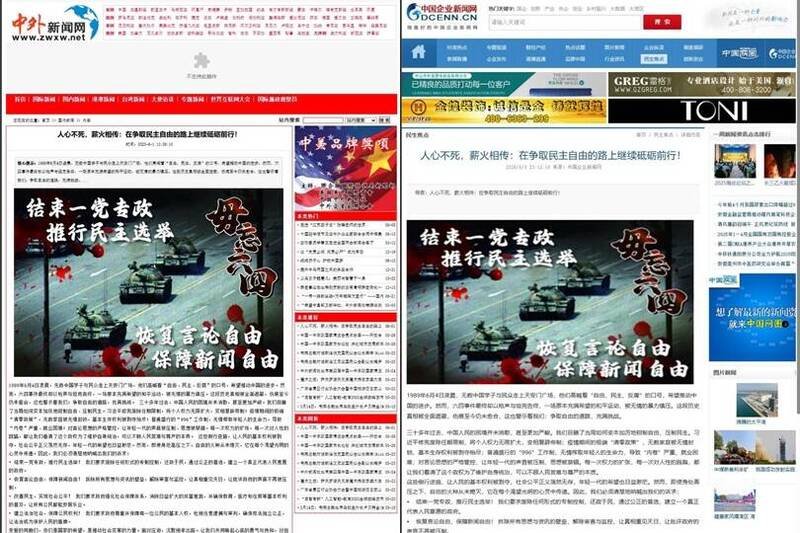
Anonymous64 Strikes Back: Chinese Propaganda Sites Hacked on Tiananmen Anniversary — A Warning to the Free World
On June 4, the 36th anniversary of the 1989 Tiananmen Square massacre, the hacktivist group Anonymous64 resurfaced with a powerful message: “Never forget June 4.” In a coordinated cyberattack, the group breached multiple Chinese state-affiliated propaganda websites, replacing their homepages with the iconic image of the “Tank Man” — the anonymous protester who stood alone before a column of Chinese tanks.
According to Taiwanese media reports, Anonymous64 hacked into prominent Chinese external propaganda platforms such as China Foreign News Network and China Enterprise News Network. In bold, simplified Chinese, they posted slogans calling for:
But the attack didn’t stop at websites. Anonymous64 claimed responsibility for breaching the People’s Liberation Army’s (PLA) news app, PLA-affiliated universities, military-industrial groups, and even seven livestreaming WeChat channels, including one at Shandong Vocational College of Business Technology. Some of these livestreams had up to 500 viewers when the hacks occurred.
While this may appear to be an isolated cyber incident tied to historical remembrance, it is a stark reminder of China’s deeply entrenched censorship machine and its growing cyber capabilities aimed at controlling narratives globally. The Chinese Communist Party (CCP) has long invested in an expansive digital infrastructure to shape public opinion both inside and outside its borders.
The United States cannot afford to view China’s internal repression as “someone else’s problem.” The same surveillance, propaganda, and censorship tools used to erase the memory of Tiananmen are being exported abroad — through:
The hacking campaign by Anonymous64 should not only be seen as a symbolic act of resistance — it is also a warning: if China’s digital authoritarianism remains unchecked, the very principles of freedom and transparency that define the American democratic model are at risk.
As Beijing becomes more assertive in exporting its model of state-controlled information, the U.S. must:
Anonymous64’s cyberattack exposed not just the vulnerabilities of China’s digital platforms, but the moral void in Beijing’s relentless pursuit of power and censorship. By reminding the world of Tiananmen — a truth the CCP wants to bury — this act of cyber resistance calls on democratic nations, especially the United States, to wake up to the growing threat of China’s digital authoritarianism.
Freedom in one country cannot survive while tyranny grows unchecked in another.